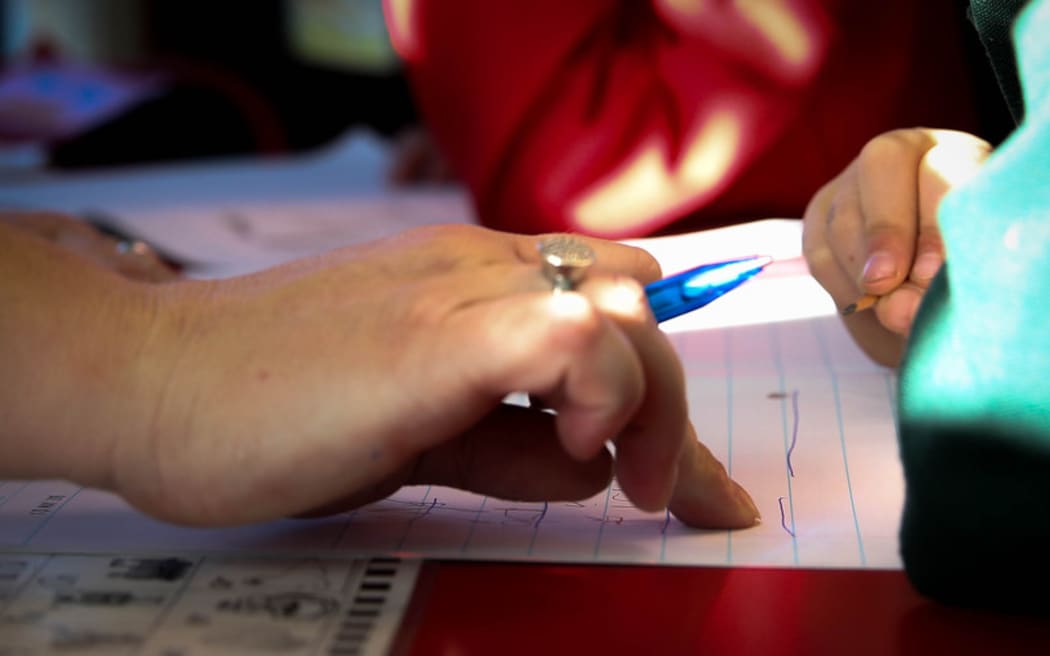Schools in the Christchurch say they are still struggling to support children who are showing signs of quake-related stress.

Teacher and student at Linwood Primary School, Christchurch. Photo: RNZ / Alexander Robertson
They say some schools cannot afford to hire social workers to help them, and when they refer children to mental health services it can be six months before they are seen.
The immediate past president of the Canterbury Primary Principal's Association and Isleworth Primary School principal, Jeanette Shearer, said children were struggling in a number of different ways.
"It varies, you see children who are very quiet and withdrawn, you see children that... it comes out in perhaps behavioural issues... they're unable to manage [their] behaviour very well,
"We also get reports from parents who tell us their children are terribly anxious at home, we have reports of children still sleeping in the same room as their parents because of anxiety," Ms Shearer said.
Its former principal, Mark Scown, said up until the school's last day in December, he was seeing quake-related behaviour issues in children, including in some born after the event.
"And yet they were still living within homes that conceivably were still broken or on streets that were still damaged, so whilst they didn't have memories of the earthquake... they seem to be of the legacy of some of the social issues that are happening still in parts of our community.
Banks Avenue Primary School principal Toni Burnside said while not all children were dealing with quake-related issues, the quakes increased the number of children needing help.
She said her school was paying to get a councillor in once a week to help support struggling children.
"That comes out of our operations grant, but that should be readily available, not [us] trying to have that bake sale to get the extra support that is needed."
She said the Ministry of Education needed to do more to help.
"One day a week is just really dipping our toes in it, so if we could give some of these children anger counselling, or some counselling to deal with the grief loss and disappointment, or to work on their anxiety then it wouldn't be so much managing the behaviour as actually fixing the problem."
Ms Sherer said another children who were referred to the Canterbury District Health Board for mental health services faced long waiting times.
"It's very difficult, you can refer children to mental health services but unfortunately the waiting list is very very long, so a child might need the help now but we could be waiting at times up to 26 weeks for that help to be put in place."
Ms Burnside said there were children in her school with depression who were on a six-month long waiting list to be seen by a counsellor.
Neither the Ministry of Education nor the Canterbury DHB agreed to be interviewed, but in a statement the Ministry of Education said an extra $10 million had been put into supporting the city's education workforce and services for children with additional needs.
The Canterbury DHB said in a statement the average waiting times for children were about 16 weeks, but most children were seen within three weeks of a referral so clinicians could decide whether their case was urgent.





